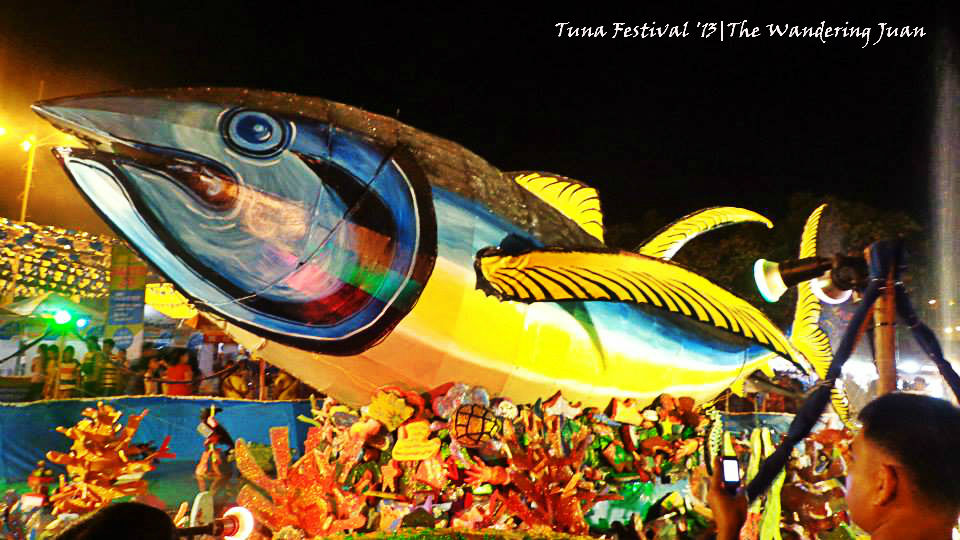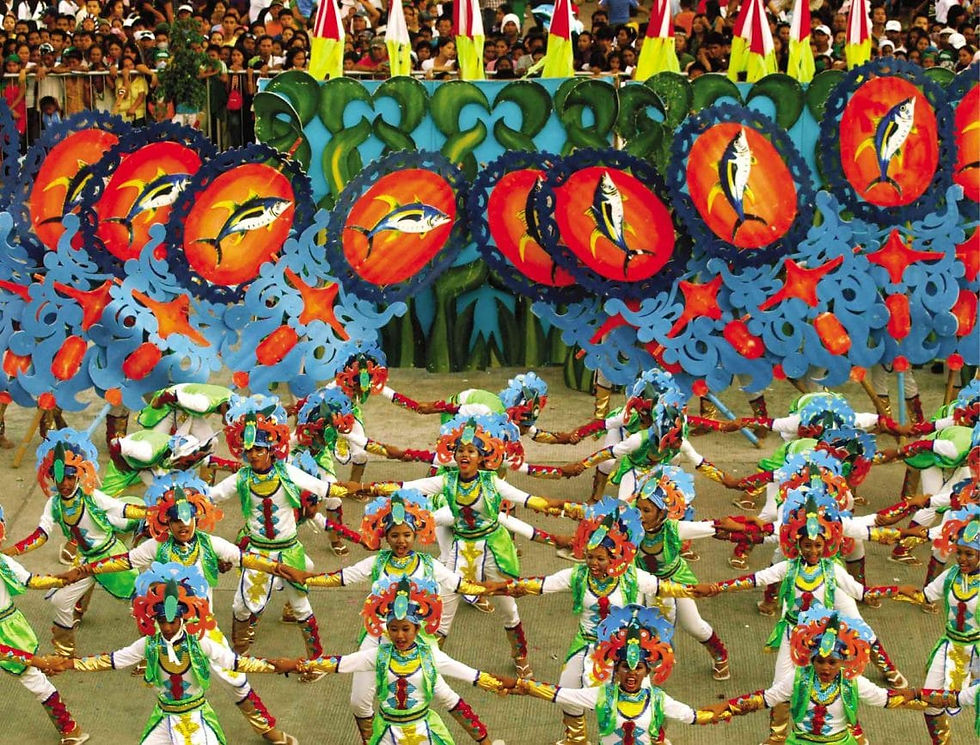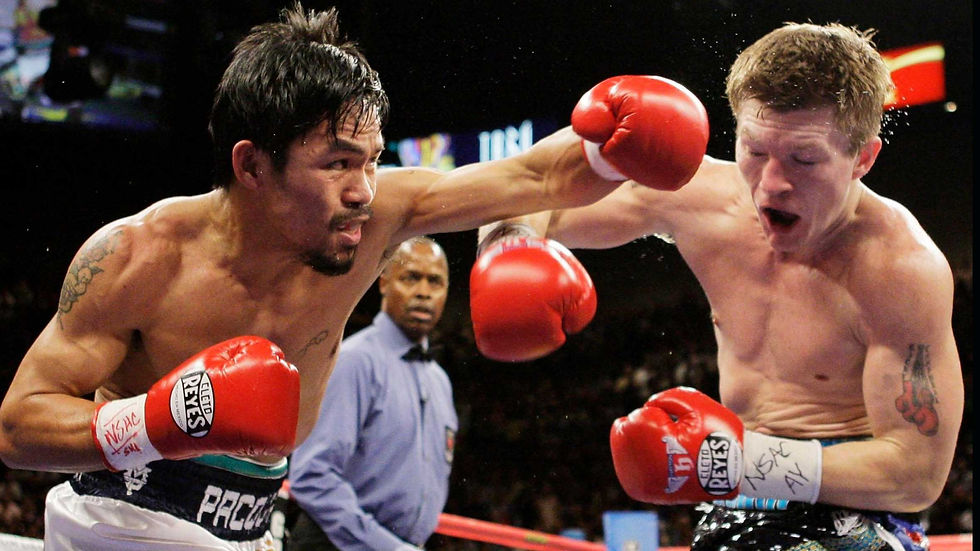The Pride of General Santos City
- John Paul Labtic
- Feb 14, 2023
- 3 min read
Updated: Feb 21, 2023

The Tuna Festival, held in the center of the affectionately referred-to General Santos City, is a bright occasion when everything linked to tuna is showcased. Every year, during the first week of September, General Santos City celebrates this unique occasion, earning the title of "Tuna Capital" for the nation. Due to the abundance of yellow-fin tuna fish in its productive seas, it is well renowned as one of the top producers globally and in the Philippines. It seems natural that the locals organized this important occasion.

Since it honors all things tuna, this celebration stands apart from all others in the nation. It is worthwhile to attend this festival, given the many enjoyable activities with tuna as their primary focus.
The Tuna Festival often kicks off with the vibrant Tuna Float Parade and Parada sa Dagat, which showcase the diversity of the city's culture through joyful and ocean-themed floats. The populace dances to upbeat music while showcasing the superb catch of the region and exciting performances. The Sugbahan Sa Dalan ends as a long line of grilled tuna is displayed inside the streets after participants have enjoyed the magnificent street dances.

The Bancarera competition, which includes a race of beautifully made dragon boats, skimboards, motorized banca, and jet skis, is the locals' favorite element of the Tuna Festival. The locals develop a strong sense of brotherhood due to these exciting events. The Pamahaw ug Pasalamat is celebrated in the municipal hall on the event's last day, and delicious seafood breakfast dishes are provided there.
Participating in the tuna festival will remind you of the Philippine sea's incredible diversity and abundance. It's also a great chance to engage in discussion and learn about the way of life of the local fisherman as they go about their daily business along the shore. Finally, since this event will bring out your inner mermaid, it's essential to unwind and enjoy yourself.

Emmanuel Dapidran Pacquiao, better known by his ring name Manny Pacquiao, was born on December 17, 1978, in Kibawe, Bukidnon province, Mindanao, Philippines. He is a professional boxer, media personality, and politician who rose to fame for having won more boxing championships than any other boxer in history.
His existence outside the ring made his journey from extreme poverty to the top of his sport all the more impressive. In the Philippines, the charismatic "Pac-Man" served as an idol and a unifying force. His exceptional success spawned commercial sponsorships, motion pictures, television shows, CDs, and the use of his likeness on a postage stamp.

When he was a youngster, Pacquiao ran away from home and stowed away on a ship sailing to Manila, where he started boxing. At 16, he made his junior flyweight debut in the professional ring on January 22, 1995. His all-action approach and boyish smile quickly earned him a favorite with Filipino boxing fans, who saw many of his early fights on the television program Blow by Blow.
On December 4, 1998, he defeated Chatchai Sasakul of Thailand to win the WBC flyweight championship, his first significant victory. But in September 1999, he lost the competition to Thailand's Medgoen Singsurat after failing to gain weight. After moving up in weight, Pacquiao defeated Lehlo Ledwaba in the sixth round of their bout on June 23, 2001, to earn the junior featherweight championship of the International Boxing Federation (IBF). He defeated Mexico's Marco Antonio Barrera by knockout on November 15, 2003, to earn the featherweight title for The Ring magazine after four consecutive defenses.
As a member of the Philippine National Police Academy's 2023 graduating class, I want to build myself as a Public Safety Leader that my people in General Santos City will look up to. In terms of how I efficiently manage my workforce, correctly enforce the law, and uphold peace and order in my sphere of influence. I also hope to serve as an example for others who aspire to join the long maroon line of Philippine National Police Academy graduates.
References:







Comments